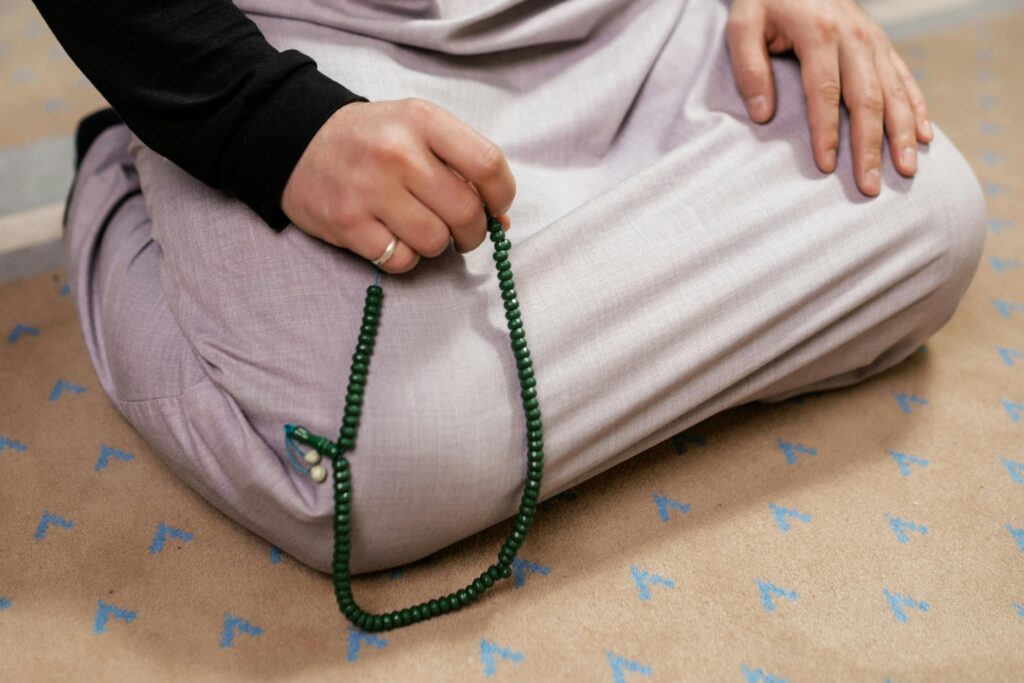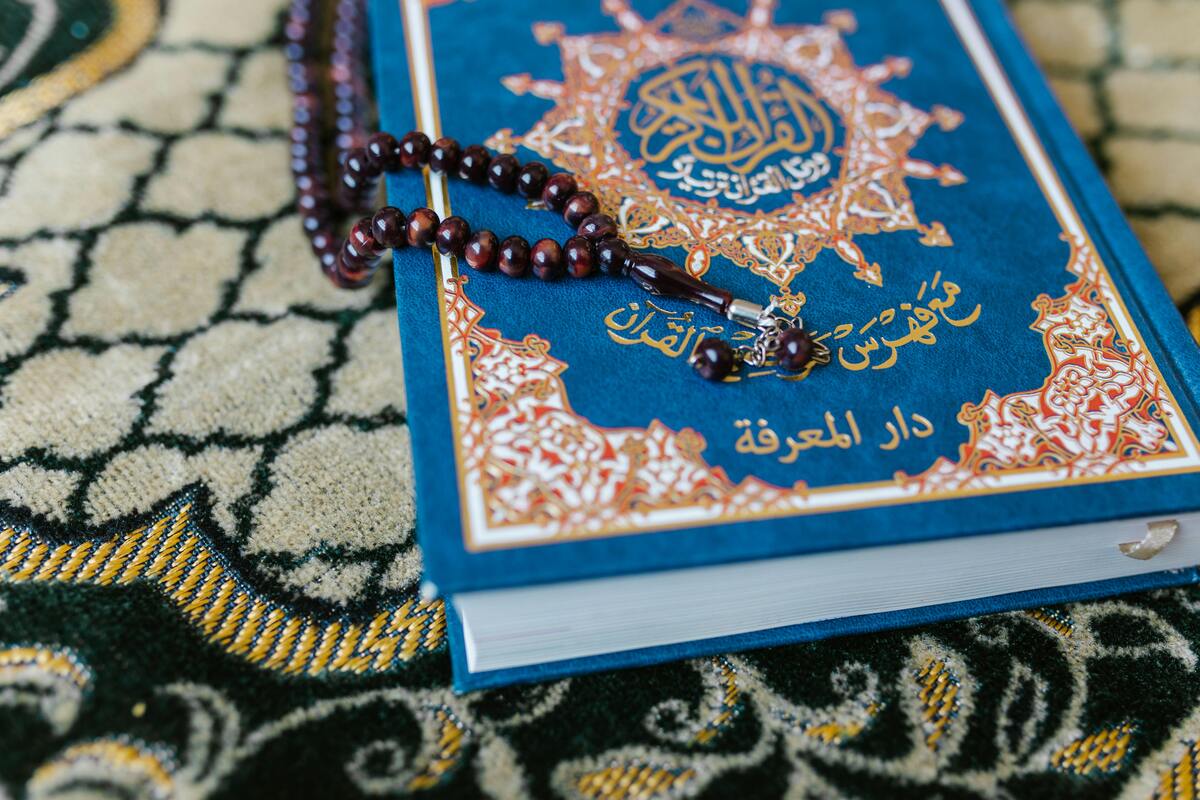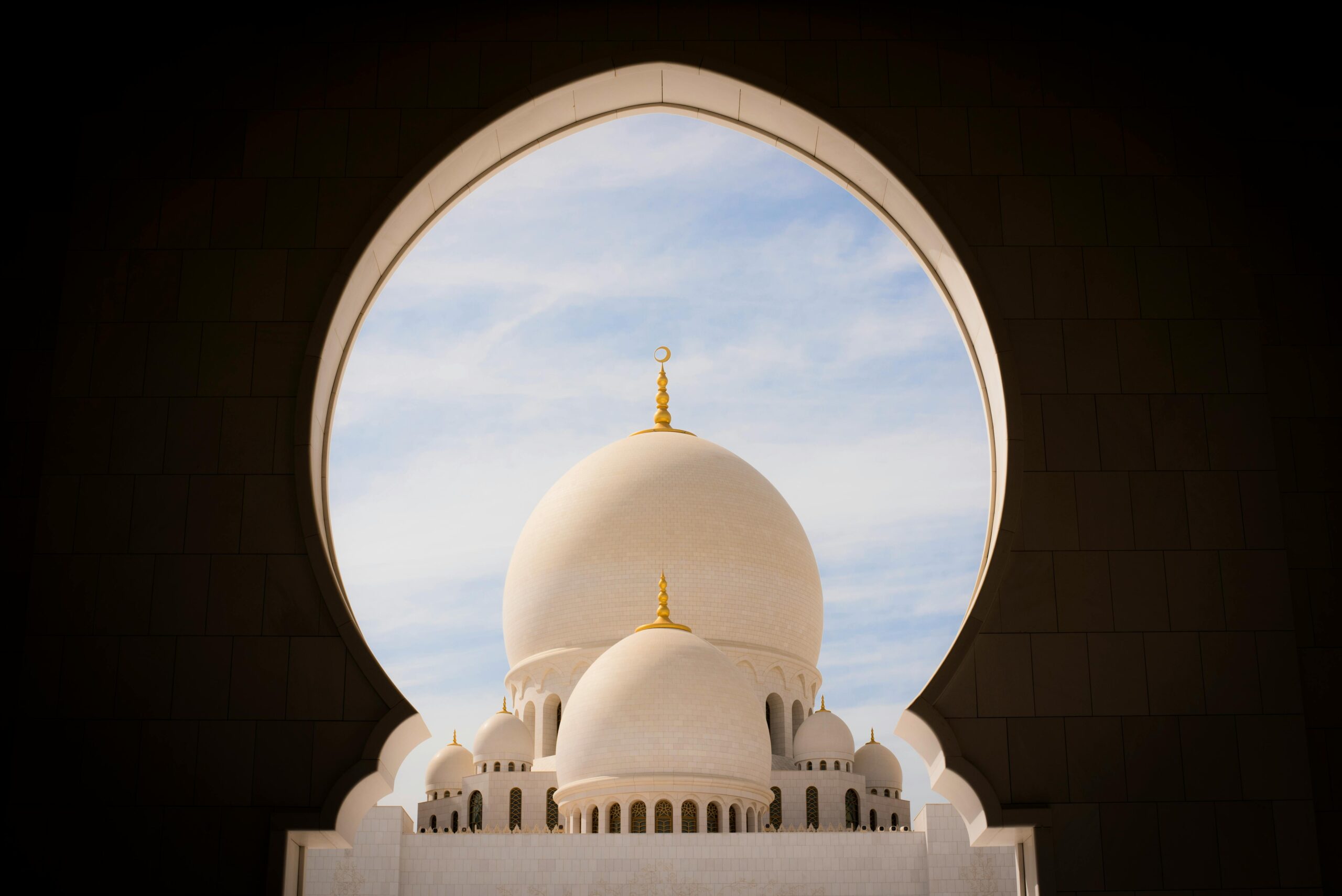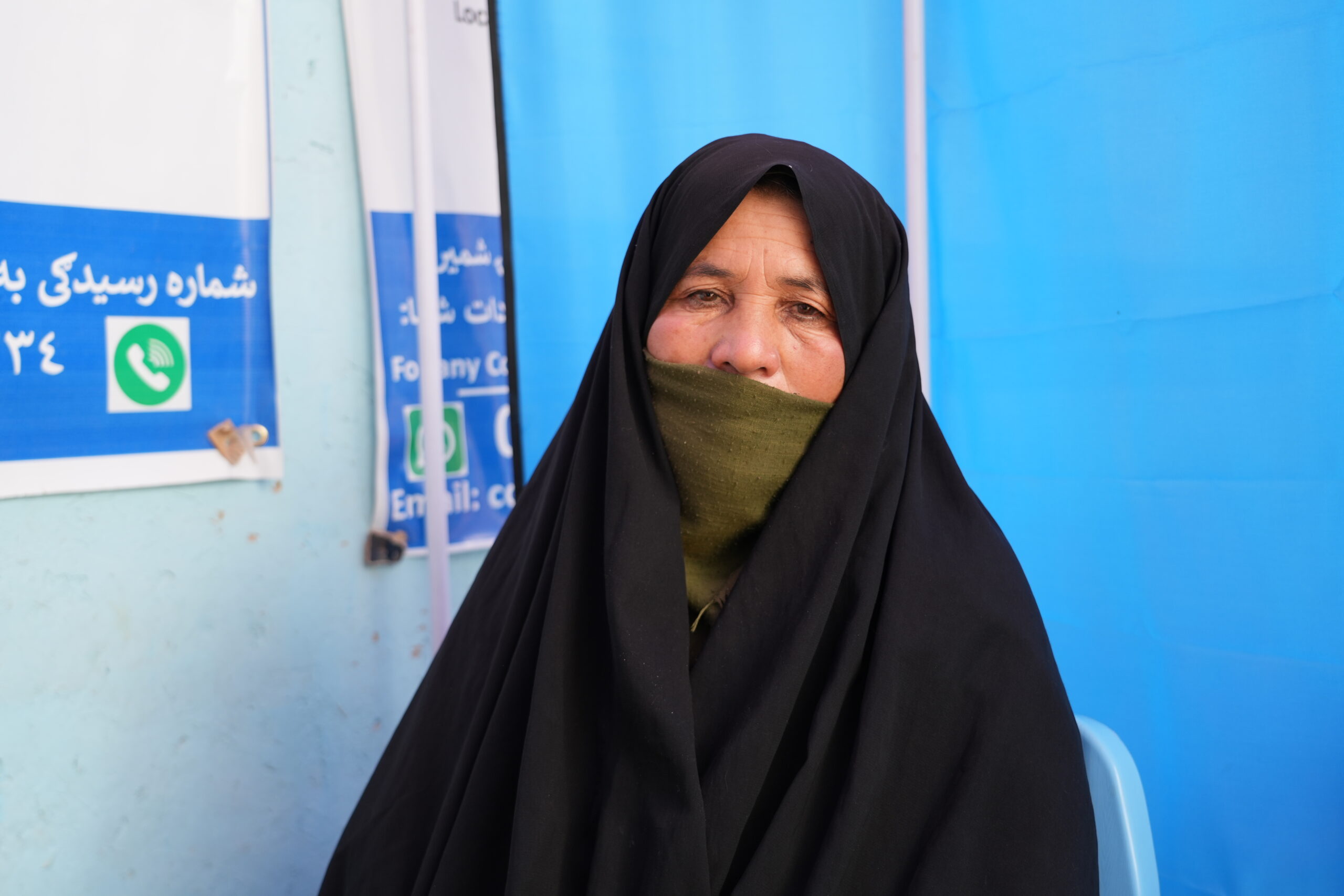
02.17.25
10 Top Tips for Ramadan for Busy Muslims
Ramadan, for Muslims, is the most blessed time of the year. It opens the door for opportunities to lose bad habits and exchange them for healthier ones – all while gaining immense rewards.
Abu Hurayrah (may Allah be pleased with him) narrated, the Messenger of Allah (ﷺ) said: “Every deed of the son of Adam will be given a ten-fold reward, up to seven hundred. Allah says: ‘Except fasting, for it is for Me, and I shall reward for it, for he gives up his desire and his food for My sake…’ and the fasting person has two joys, one joy when he breaks his fast and another when he meets his Lord. And the smell from his mouth is better before Allah than the fragrance of musk.”
Sahih Al Bukhari
However, in this day and age, it can be hard to match up our big plans for Ramadan with our busy schedule. Even with our best intentions and efforts, staying on top of chores, family commitments, school or work, on top of the additional worship is often more complicated than we think!
So how do we make the most of it? How can we maximise the benefits of Ramadan without getting overwhelmed?
Top Tips for Tackling Ramadan on a Busy Schedule
Many of us are super-worried about our productivity during Ramadan. What is the right balance between staying on top of our daily tasks while also squeezing in more ibadah (acts of worship) in our lives?
That’s why we’re giving you 10 practical tips for Ramadan to help you reach your spiritual goals for this blessed month without burning out!
1 | Start Ramadan with Sincere Intentions
Having sincere intentions, working hard and making lots of dua is the hack for an ultimate productive Ramadan.
Umar ibn al-Khattab reported, the Messenger of Allah (ﷺ) said: “Verily, deeds are only with intentions, and every person will have only what they intended.”
Bukhari and Muslim
Intentions lead to results. When a change in intention occurs, when we commit to take action, it makes us more motivated to do it.
Having the intention is enough for Allah (SWT) to make a change in our reality, so we should not dismiss how a change in intention (our internal condition, our mindset) needs to occur so we can take steps to change our external condition.
2 | Plan Ahead and Set Clear Goals for Ramadan
Before Ramadan starts, set personal goals for yourself. Break them down step by step to make it easier for you to tackle them.
For example, set a goal for how many chapters of Quran you would like to finish during the month. Once you do that, split the task and divide it. Have a set number of pages or ayat to read each day. Then decide if you want to set a whole block of your day for reciting or have multiple smaller time slots throughout the day.
You can also set similar goals for dhikr, duas, extra prayers, and more. However, be sure to be realistic – know your limits. Highlight the small, consistent acts that are challenging but you know you can complete. Then have another list for the ibadah you want to add on after you smash your initial goals. That way, you’re always striving to do better throughout the month!
3 | Prioritise Your Spiritual Obligations
Even with our busy schedules, we need to always have time for prayer and remembering Allah (SWT) – especially during the holiest month of the year, Ramadan.
Try to work your schedule around salat (prayer) times rather than the other way around. Set reminders or alarms on your phone to ensure you don’t forget your spiritual obligations amidst your busy schedule. Soon enough, it’ll come naturally to you, and you’ll be able to maximise every moment during Ramadan.
4 | Build Environments that Make it Easier to Stay Focused
Fasting can make it hard to concentrate, especially in the afternoon. But with the right approach, you can stay productive.
Adjust your work or school schedule to accommodate for fasting and prayer times in Ramadan. Likewise, talk to your employer or supervisor to see if they can offer flexible working or a lighter workload during Ramadan.

For school or work, focus on demanding tasks right after Suhoor (the meal you eat before you fast) when your mind is fresh. In turn, if you can, take power naps. A short nap (around 10-20 minutes) after Dhuhr can go a long way in boosting your energy.
Overall, having this strategic approach to your busy schedule prevents exhaustion and helps keep you on track.
5 | Step Back From Socials
If you’re someone who spends a good chunk of their day browsing and surfing on social media forums, it might be a good idea to take a step back for Ramadan. Turn off notifications, temporarily deactivate your accounts, or maybe even delete the applications from your phone.
Taking these steps will help you not get distracted by socials in the first place. This way, you have more time to work on beautifying your ibadah – doing more dhikr, dua, Quranic recitation and more!
6 | Eat Healthy Meals for Suhoor and Iftar
Eating well is key to staying productive. It keeps your energy steady, making ibadah and daily tasks easier. So, what foods should you eat for suhoor and iftar?
For suhoor, focus on slow-digesting foods that help you stay full longer. These include oats, eggs, whole grains, and nuts. Try to limit salty and sugary foods as they cause you to get dehydrated more quickly.
For iftar, break your fast with dates and water, following the Sunnah of the Prophet (ﷺ). Then have a balanced meal with lean proteins (like chicken, fish, or tofu), healthy fats (like nuts or eggs), and complex carbs (like potato or whole grains).
To make things less overwhelming, try meal prepping! It saves time, ensuring you have a nutritious meal ready to go, even on the busiest days.
One of the key tips to Ramadan meal prep is cooking in batches and freezing meals. You can also prepare smoothies or overnight oats for quick suhoor options. And for those moments you feel a bit hungry after taraweeh? Keep healthy snacks on hand to avoid reaching for junk food.
All in all, keep things clean and simple! By eating right, you won’t make work and worship harder on yourself during this blessed month.
7 | Continuously Ask Allah (SWT) for Forgiveness
Allah (SWT) loves those who engage in constant ‘istighfar’ – constant repentance. So, one of the best things you can do in Ramadan is seek Allah’s (SWT) Mercy.
Ramadan is a blessed month when Allah (SWT) widens the gates of communication and mercy.
Ibn’ Abbas (may Allah be pleased with him), narrated that Prophet Muhammad (ﷺ) said: “If anyone constantly seeks pardon (from Allah), Allah will appoint for him a way out of every distress and a relief from every anxiety, and will provide sustenance for him from where he expects not.”
Abu Dawud
8 | Include Frequent Dhikr in Your Schedule
One of the easiest acts of worship to include in your busy schedules is Dhikr (Remembrance of Allah (SWT)). It’s short, and Allah (SWT) gives you great rewards for it!
Dhikr (plural, adhkar) includes sayings that glorify Allah (SWT), such as Allahu Akbar, subhanAllah, and Alhamdulillah. Adhkar can also include reciting dua or certain verses in the Qur’an for the purpose of remembering Allah (SWT).
They’re short enough to memorise or recite fairly quickly during any free time you get in between your daily tasks of the day.
For example, if you are driving to work and you have a 15-20 minute journey in between, use that time to engage in dhikr. Or use your breaks in between work meetings, or spend a few minutes after salah to make dhikr with tasbeeh.

While it might not seem like much, by maximising your ibadah time in this way, when you add them all together, that’s quite a lot of potential good deeds!
9 | Maximise Ramadan Nights for Worship, Even with a Busy Routine
The nights of Ramadan, especially the last ten, are filled with many blessings. But it can be quite the struggle to balance Taraweeh, family time, and rest during these nights.
To help maximising your time for worship at night, focus on what works best for you. If you can’t pray long Taraweeh, pray shorter ones. Even two extra rak’ahs bring rewards.
In turn, if you struggle to stay up late, do small but consistent ibadah. Keep a list of short duas handy and make those supplications sincerely. Do tasbeeh (glorifying Allah) or reflect on a few Quranic verses.
If your time is limited, quality matters more than quantity. Because, with sincere intentions, even small efforts during the night can bring great rewards.
10 | Manage Your Ramadan Workload
Even if we have a plan for our goals, we can still get overwhelmed or underestimate how long things will take. This is especially true during Ramadan, where many of us will have more commitments, including being invited to iftar dinners and taraweeh prayers to perform.
That’s why it’s essential to have a strategy in place to manage our workload during Ramadan. Prioritise tasks, delegate where possible, and avoid taking on additional responsibilities if you can.
And remember, don’t get discouraged if everything doesn’t go as planned. Keep planning, keep trying. For Allah (SWT) is the best of planners, and whatever He puts in your path He knows you can overcome it!
In Conclusion…
Ramadan doesn’t have to be overwhelming, even for the busiest Muslims. With the right mindset and planning, you can balance work, worship, and family – all while making the most of this blessed time.
Remember, Allah (SWT) rewards efforts, not perfection. Even small acts done with sincerity can bring immense barakah (blessings).
So, make an extra effort in this Holy month – it will go a long way! May this Ramadan be a time of growth and blessings for you and your loved ones!
Get the Ramadan Journal
How do you make the most of Ramadan? For the most blessed time of the year, here’s a daily planner to help you stay organised.





